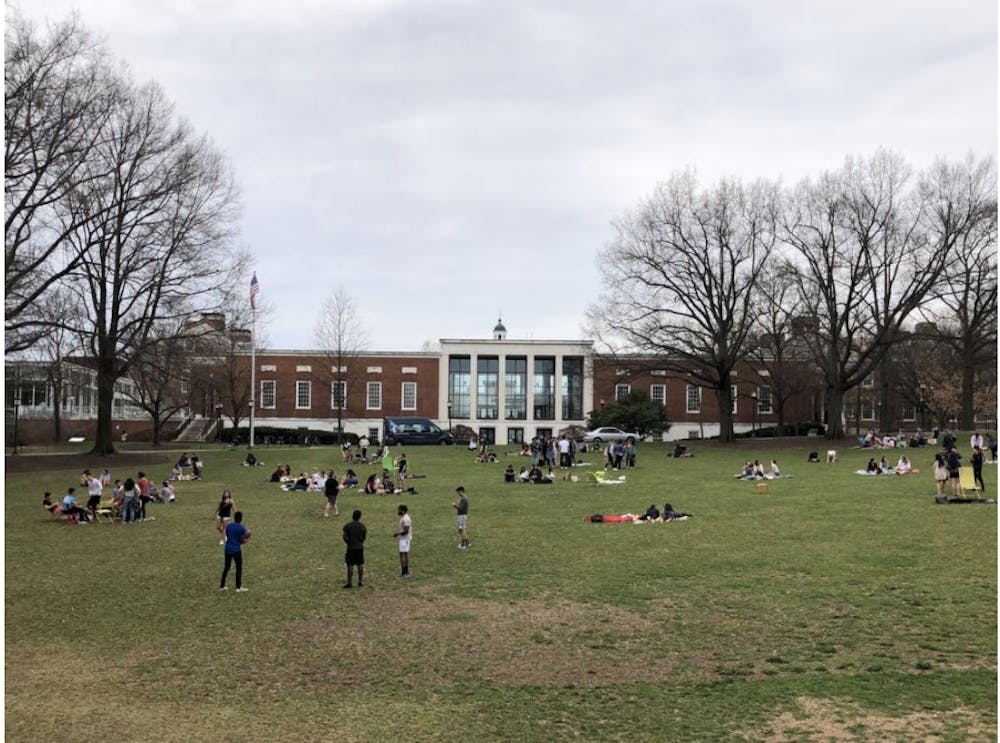University President Ronald J. Daniels and fellow administrators announced in an email to the Hopkins community that the University will be resuming in-person activities in the fall.
These plans are not yet final, as the University is seeking additional input. The email stressed that plans for the upcoming semester are prone to change if the public health situation demands it. However, administrators hope to reach a finalized approach for returning to campus by mid-July.
Rising sophomore Lubna Azmi, a first-generation/limited income (FLI) student, explained that she is hesitant about the plans in the email, which was sent on June 30.
“The best decision would be to keep quarantining but no one in America is getting that,” she wrote in an email to The News-Letter. “Everyone is restless to get back to how things were... when at this point, we need new plans because people are going to die.”
The statement confirmed an earlier promise that students who cannot return to campus will be allowed to continue remote instruction from their homes. However, according to Daniels, undergraduate students who wish to return to campus should expect a hybrid of in-person and online classes beginning August 31 and continuing through Nov. 20. All classes and exams will be conducted virtually following Thanksgiving break.
According to the University’s Undergraduate Coronavirus (COVID-19) Information Page, classes may even be offered on weekends and evenings in order to maximize classroom space.
Rising sophomore Daniel Gindi noted that many students rely on having their weekends free from class for commitments outside of school.
“I supposed the thought is to have fewer classes at any given time, but this removes the small break from the week that many students need. As an Orthodox Jew who observes Shabbat, I’m personally concerned with having to miss 14 extra classes for the classes that will now be taught on Saturdays,” he wrote in an email to The News-Letter.
Administrators noted that larger courses will be conducted online, with medium-sized and smaller courses following a mixed-platform model. The SIS course catalog will include information on class formatting following July 10.
Social distancing protocols will be enforced across the University, including the requirement of face-coverings while on campus. COVID-19 testing will be available to students exhibiting symptoms. Those who test positive must self-isolate for 14 days.
Gindi expressed concern about students’ ability to social distance while among their peers.
“Their precautions and guidelines will help to prevent spread on campus but when people aren’t in class I think students will be more lax than they should be,” he wrote.
First-year students who come to campus will be required to live on-campus and have single rooms with limited sharing of bathrooms. Because of social distancing protocols, Daniels and fellow administrators noted that not all second-year students will be able to live in on-campus housing.
“We will provide housing in nearby hotels and apartments, with support from RAs and transportation to and from campus,” they wrote. “Second-year students also are allowed for this academic year to live on their own, in private off-campus housing near campus. Our Off-Campus Housing Office can help identify the options for those who are interested.”
While emphasizing that individual FLI students will have different opinions about the plan, Azmi explained that the uncertainty regarding sophomore housing raises a lot of questions about the semester’s cost. Given this uncertainty, Azmi criticized the University’s decision to increase tuition.
“The 3% increase in the tuition is ridiculous because the services students are receiving are nowhere near the same,” she wrote.
The University’s Undergraduate Coronavirus Information Page states that the rise in tuition is to ensure educational excellence at the University and keep Hopkins competitive with its peers. It promises to combat the economic stress of the pandemic with renewed financial aid, which will be released the week of July 6.
“We understand that the COVID pandemic is creating unexpected financial burdens for many families,” the website states. “The university is prepared to help meet these burdens with commitments to significantly increase financial aid.”





